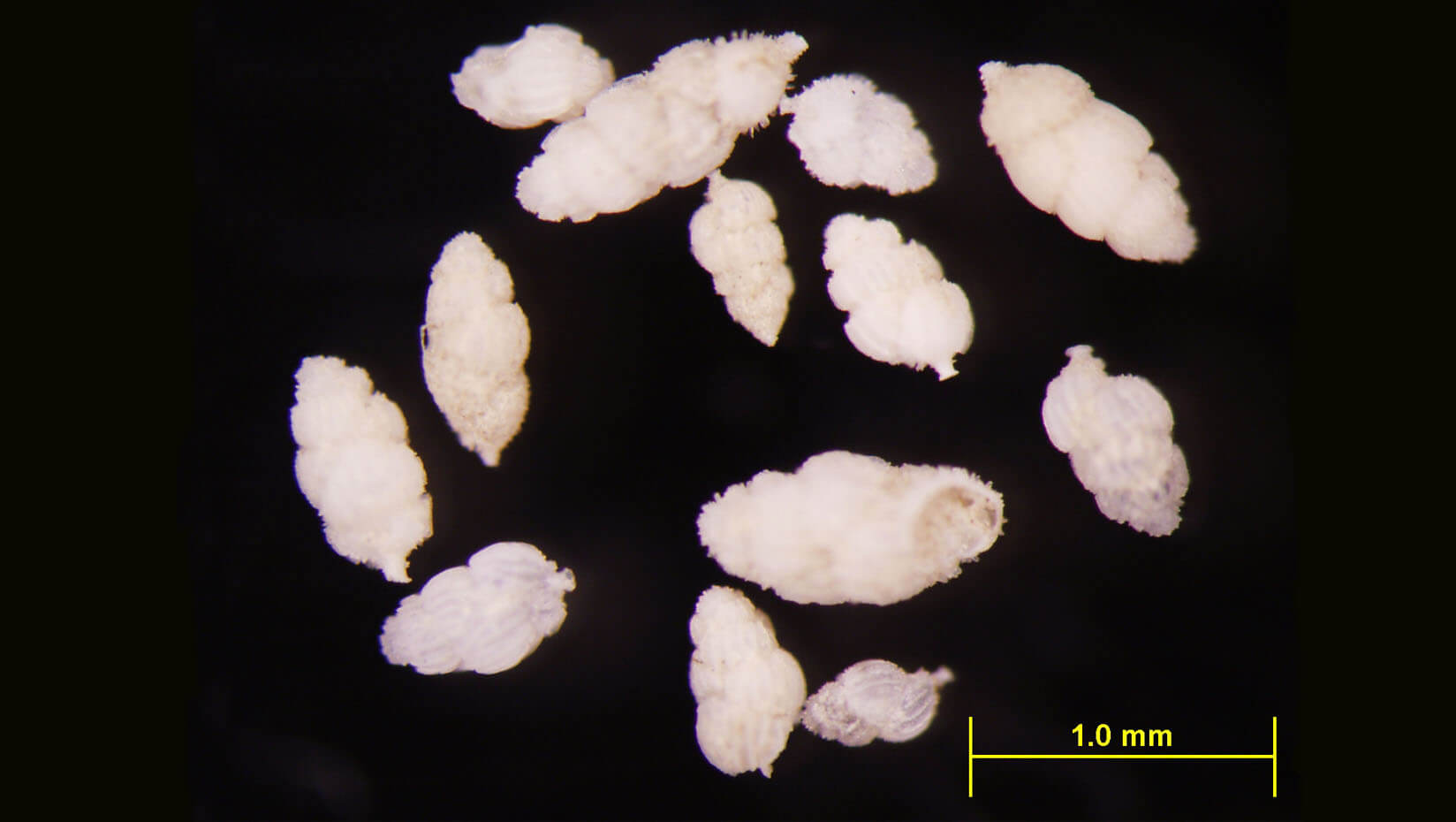
For Allen, fossils yield data to understand ocean circulation, climate
Katherine Allen is an ocean historian.
But instead of poring through old texts, she studies the chemical composition of tiny ancient fossil shells in Southwest Pacific marine sediment.
Allen, a research assistant professor at the University of Maine, says these marine fossils — which have been accumulating on the seafloor for millions of years — provide a rich archive of past seawater properties.
The resulting data, she says, could advance understanding of past ocean circulation patterns and the ocean’s role in global climate change, both past and present.
“I investigate past ocean conditions to understand how the ocean-climate system works on time scales that extend beyond historical records,” says Allen, who recently received a grant from the National Science Foundation to do just that.
“The amount of information we can decipher from these microscopic shells is truly amazing and with new analytical techniques continually being developed, the potential keeps growing.”
Because oceans store, release and transport enormous amounts of heat and carbon, they’re key to climate regulation of the planet, Allen says.
And learning about climate events thousands of years ago — including ice ages — provides context for the modern Earth system and allows assessment of longer-term climate dynamics.
In the grip of an ice age 20,000 years ago, the planet was later warmed by a series of natural events that ultimately caused the massive ice sheets to melt and the ice age to end.
Scientists are still working to understand what drove that global climate shift.
While ocean circulation likely played a key role, Allen says knowledge of the ocean’s ice-age properties — including temperature and salinity — is incomplete.
Her research project is titled “Collaborative Research: Pacific Ocean stratification since the last ice age: New constraints from benthic foraminifera.”
The total award for the three-year project is $388,200. Throughout the endeavor, Allen will be working with co-investigator, Elisabeth Sikes at Rutgers University.
UMaine graduate student Cassandre Stirpe is working with Allen and in summer 2017, undergraduates from both UMaine and Rutgers will assist with lab work.
“It’s an exciting field of research and I really enjoy the interdisciplinary nature of the work. To solve these problems we need to delve into geochemistry, physical oceanography and stratigraphy, and we work closely with colleagues at many institutions,” Allen says.
“The truth is, Earth knows no academic boundaries, so to answer global questions we need to bring together insights from different disciplines. That’s often where things get exciting.”
Contact: Beth Staples, 207.581.3777
